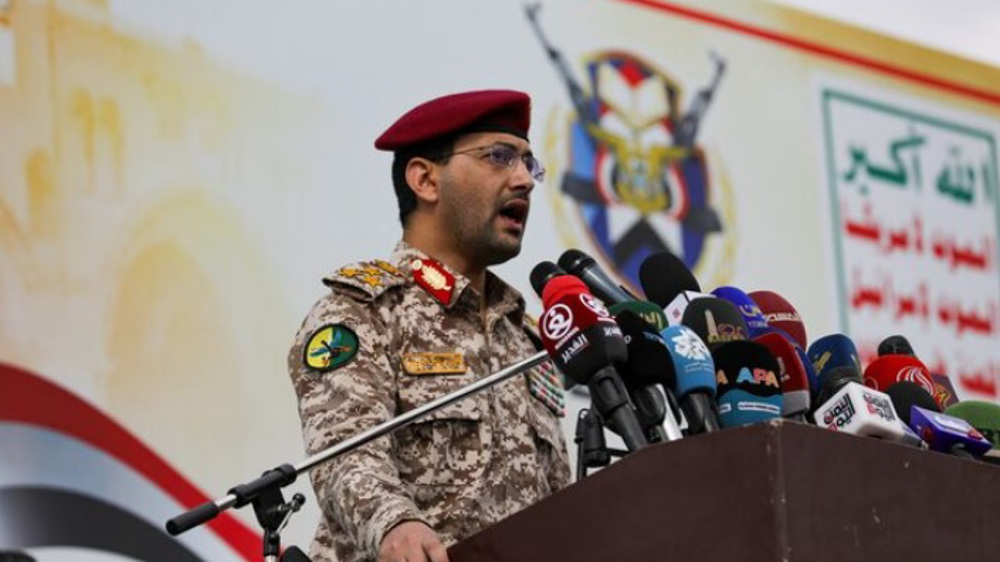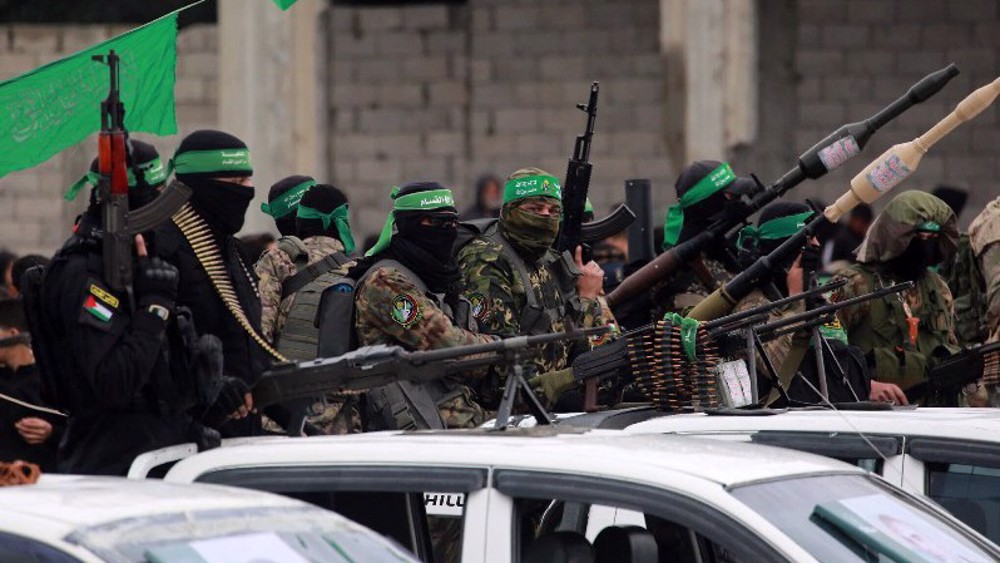After apartheid wall, Israel unveils ‘apartheid road’ in West Bank
After constructing the controversial "apartheid wall" to separate Jerusalem al-Quds from the rest of the West Bank, Israel has now opened the “apartheid road” in the area, separating Palestinian and Israeli drivers with a wall.
The roughly 3.5km stretch, which was inaugurated on Wednesday, features an eight-meter high wall that puts Palestinian drivers, who are banned from entering the city, on the western side and Israeli settlers on the eastern side.
The road was constructed over a decade ago but remained closed amid a dispute between the Israeli military and police over a checkpoint.
While segregated Israeli roads are common, none had featured a wall before.
Israel’s Public Security Minister Gilad Erdan said the highway would ease heavy traffic for settlers in the area while helping Israel overcome “security challenges."
The road’s opening prompted condemnation from the Palestine Liberation Organization (PLO).
“This is an Israeli example of apartheid and racist separation that once existed in South Africa,” PLO Executive Committee member Ahmad Majdalani told Israeli media. “Any Israeli who believes in democracy should feel ashamed about this new road.”

The Palestinian Authority said in a statement that the road posed a challenge to “the credibility of the international community."
"It's a shame on the international community to see an apartheid regime being established and deepened without doing anything to stop it," the PA statement read.
Palestinians have long feared that the road and other similar construction projects in the area would eventually split the West Bank in half, further hindering Palestinian plans for a future state.
A two-lane road built on a stolen land opens in occupied Jerusalem.
— AbdelKarim Alkahlout 🌹🇵🇸 (@KareemN96) January 10, 2019
The road is divided by a high wall, better called Apartheid wall, in which the western side serves Palestinians and the eastern one serves illegal Israeli settlers.
WELCOME TO APARTHEID israel! #Palestine pic.twitter.com/b4ESSjYF4V
Ir Amim, an Israeli NGO opposing Israel's settlement expansion activities, warned that the road facilitates settlers’ commute at the expense of Palestinian communities.
According to Aviv Tatarsky, who works with the NGO, the new road further isolates some Palestinian villages from Jerusalem al-Quds while forcing Palestinians traveling between the north and south of the West Bank to change course.
If this isn’t apartheid what is? #Palestinians are forced to stay on one side of this road outside of #Jerusalem and Jewish settlers use the other. pic.twitter.com/cYOgrKENWw
— We Are Not Numbers #Gaza (@WeAreNotNumbers) January 10, 2019
About 600,000 Israelis live in over 230 settlements built illegally since the 1967 occupation of the Palestinian territories.
Jerusalem al-Quds is already separated from the West Bank by the so-called Israeli “apartheid wall.”
Israel began building the 712-kilometer barrier of towering concrete walls, barbed-wire fences, trenches and closed military roads inside the occupied West Bank back in 2002.
The International Court of Justice said in 2004 that the apartheid wall violated international law and urged Israel to remove it.

Yemini forces say they launched attacks on Israeli sites, US warships

MSF: 70% of burn victims in Gaza are children, little chance of recovery

Hamas: No partial truce, only comprehensive deal acceptable
Trump’s tariffs spark fears of price hikes, product shortages in US: Report
UN offers condolences to Iran after deadly Bandar Abbas explosion
US airstrikes hit seized Israel-linked ship in Yemen: Report
Israeli settlers cut water supply to Palestinians in West Bank
VIDEO | Austria protests mourn Gaza deaths
Ex-spy chief urges ‘revolt’ against Israeli regime; says Tel Aviv must be ‘stopped’
VIDEO | Press TV's news headlines
VIDEO | Paris hosts ‘end famine’ rally in support of Gaza






 This makes it easy to access the Press TV website
This makes it easy to access the Press TV website